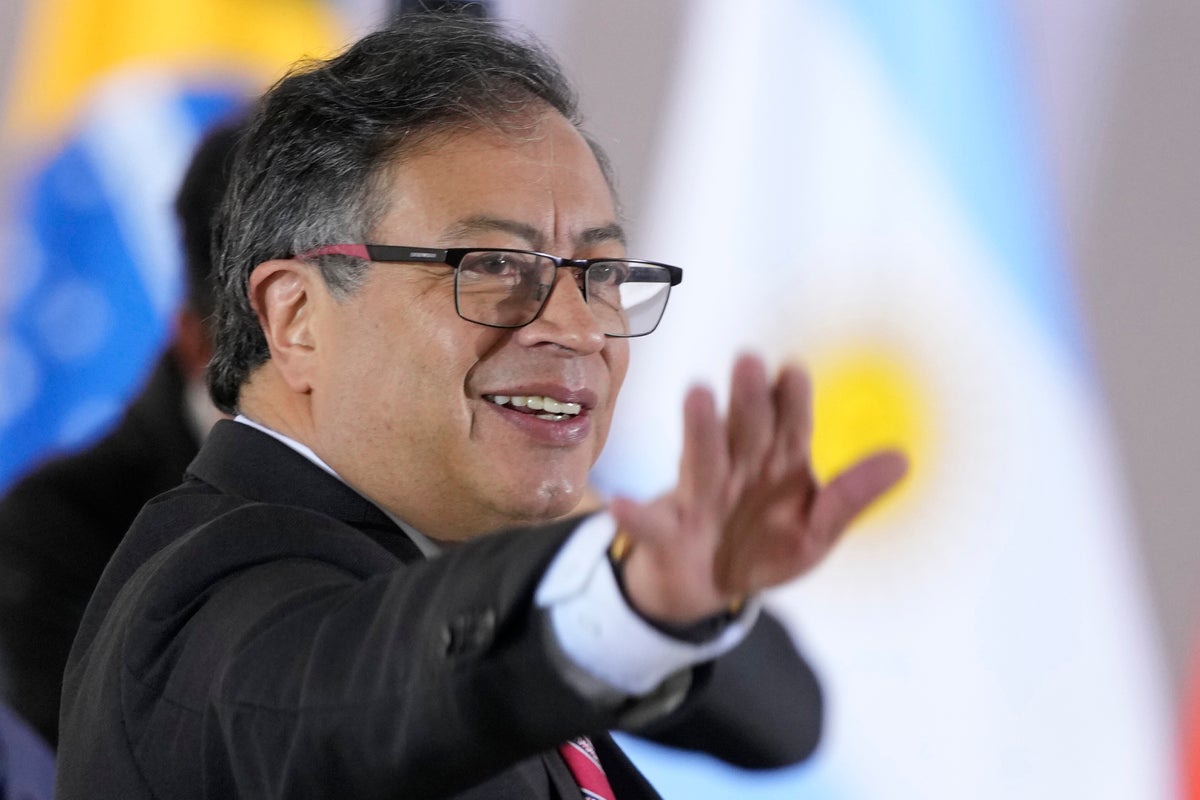
A corruption scandal that has shaken Colombia’s first leftist government and undermined its ability to carry out ambitious reforms grew on Monday, following the release of several voice messages featuring the nation’s former ambassador to Venezuela.
In the audios, which were released by Semana Magazine, former ambassador Armando Benedetti speaks to President Gustavo Petro’s chief of staff and threatens to disclose potentially damaging details of Petro's 2022 presidential campaign.
Benedetti, who was once the president of Colombia’s senate, complains that he was not given the job of interior minister after it was vacated in April, and hurls insults at chief of staff Laura Saravia. He says he hasn't been given the “political space” he deserves after helping Petro win last year's election.
The former ambassador alleges that he raised almost $4 million for the campaign from donors and hints that some of the money came from drug trafficking groups.
“I will not let you screw around with me,” Benedetti tells Sarabia in a threatening tone. He compares himself to Osama Bin Laden blowing up the twin towers in New York City and says that he doesn’t care if everyone in Petro’s inner circle goes down with him.
“I swear by the life of my children that we are all going to sink, we are all going to jail, this whole damn thing will blow up,” he says in the audio.
Petro denied the allegations. On Monday, he wrote on Twitter that his campaign rejected donations that did not comply with legal criteria, and added his campaign was mostly financed with loans from banks.
In an interview published on Monday, Benedetti said the audios were authentic, but refused to provide details about where the campaign funds he had mentioned came from. He added, however, that the alleged funds “did not come from business people.”
The recordings are the latest chapter of a corruption scandal that broke out in May, after Semana revealed that Sarabia had her son’s nanny whisked to a basement in front of the presidential palace after a bag with $7,000 in cash disappeared from her home. The nanny was forced to take a lie detector test by presidential security personnel.
Colombia’s Attorney General then revealed that Sarabia’s nanny had been illegally wiretapped by detectives, presumably on Sarabia’s orders. Meanwhile, Cambio magazine revealed that the nanny was flown to Venezuela on a charter plane on Benedetti’s request, for reasons that are still under investigation.
Benedetti and Sarabia lost their jobs last week over the scandal, which has damaged the Petro administration’s credibility among voters, and weakened its standing in Colombia’s congress.
On Monday, president of congress David Racero, a member of Petro’s Historical Pact Party, suspended hearings on reforms to Colombia’s health care system, pension system and employment laws arguing that he did not want “external factors” to affect votes on those reforms.
When he was elected last year, Petro promised to make sweeping reforms to the Colombian state, aimed at diminishing long standing inequalities.
But the reforms proposed by the Petro administration require congressional approval, which forced Petro – whose party does not have a congressional majority – to make a coalition with the traditional parties that have run the country for decades, and hand them control over some government ministries.
That coalition, which included liberals, conservatives and centrists, began to fracture in April over Petro’s ambitious health reform, which seeks to turn state run entities into the only administrators of public health funds -- cutting out private insurance companies.
Analysts say the scandal featuring Petro’s advisers will seriously jeopardize the health reform's chances of being approved by congress, as well as other legislative projects.
“This (scandal) will collapse what remains of Petro’s big tent coalition,” said Will Freeman, a Fellow on Latin American Studies at the Council on Foreign Relations. “Who wants to be associated with a government that is mired in these types of allegations?”
Freeman said that with elections for governors and mayors coming up in October, parties that were formerly in Petro’s coalition could end up fielding candidates on their own instead of partnering with Petro’s Historical Pact. “They will ask themselves if they will be better served by being in government, or in opposition to Petro, Benedetti, and all these corrupt allegations.”
Petro’s popularity was already falling before the scandal broke out as his administration struggled to control inflation and violence in rural areas, where ceasefires with two major armed groups have fallen apart recently.
Jorge Restrepo, the director of CERAC, a Colombian policy think tank, said the Petro administration will have to give up on structural reforms to the Colombian state that need to be approved by congress, such as the health and pension reforms.
“The only thing left for them is to try to improve public administration.” Restrepo said.


.png?w=600)




